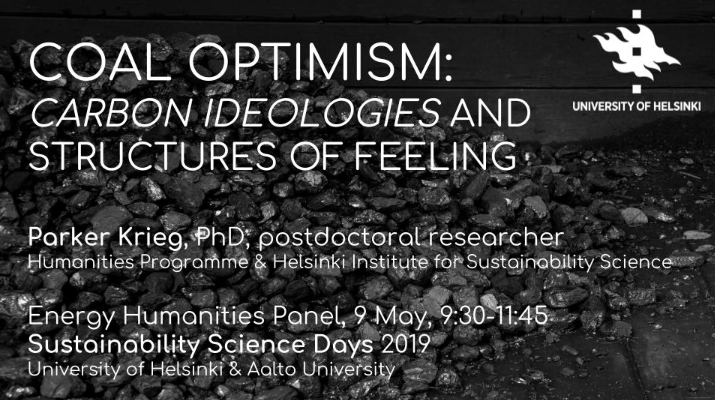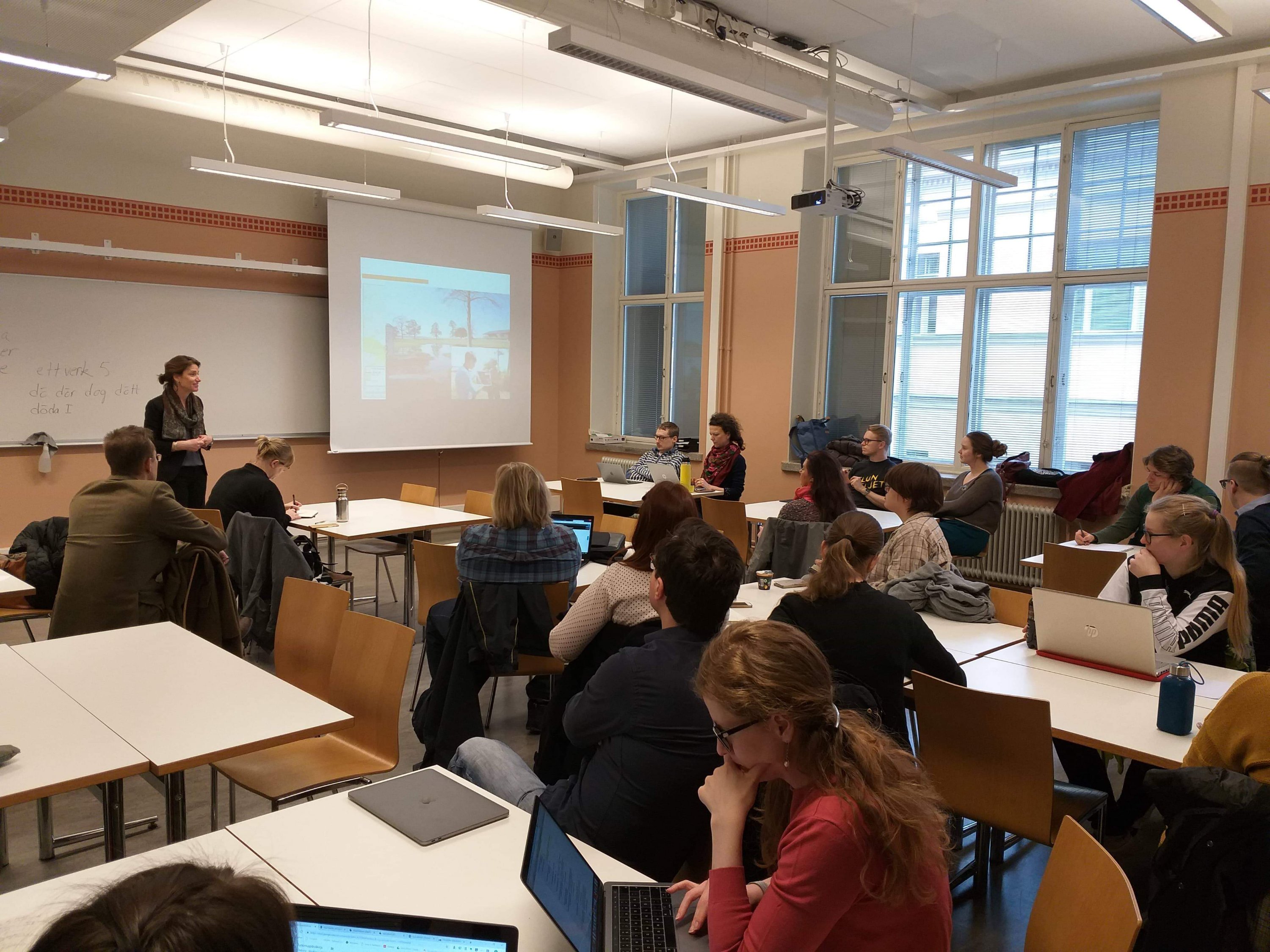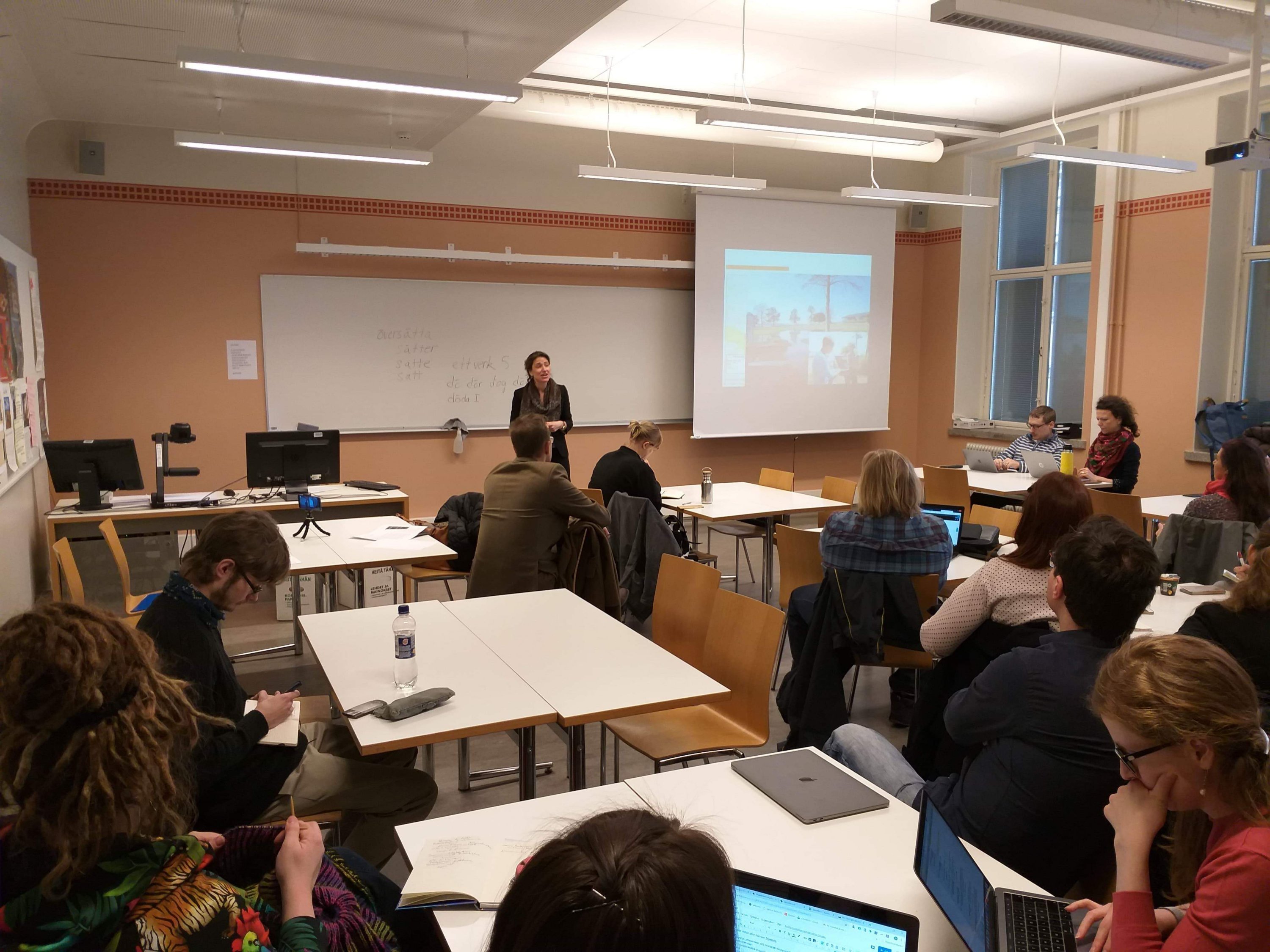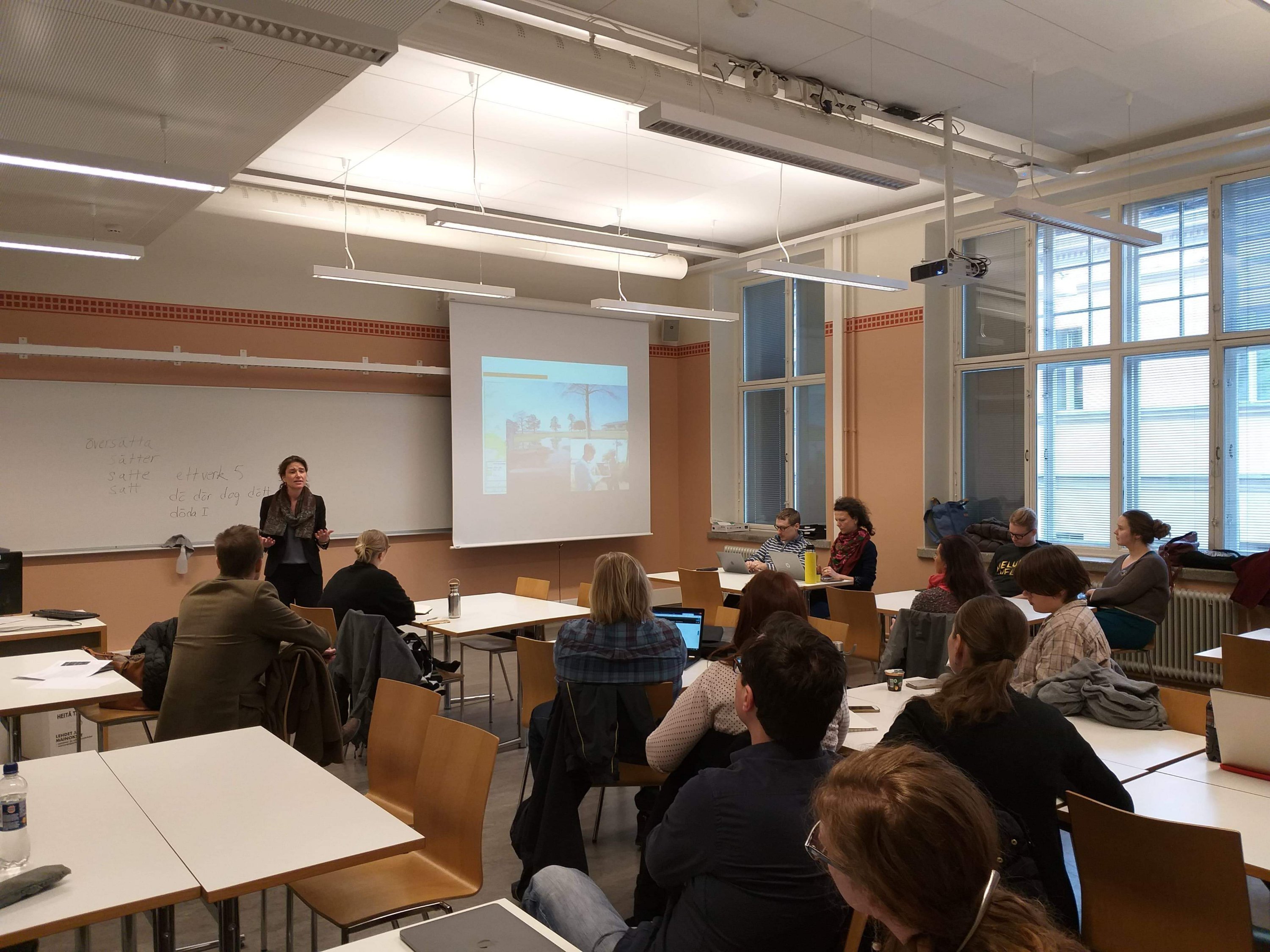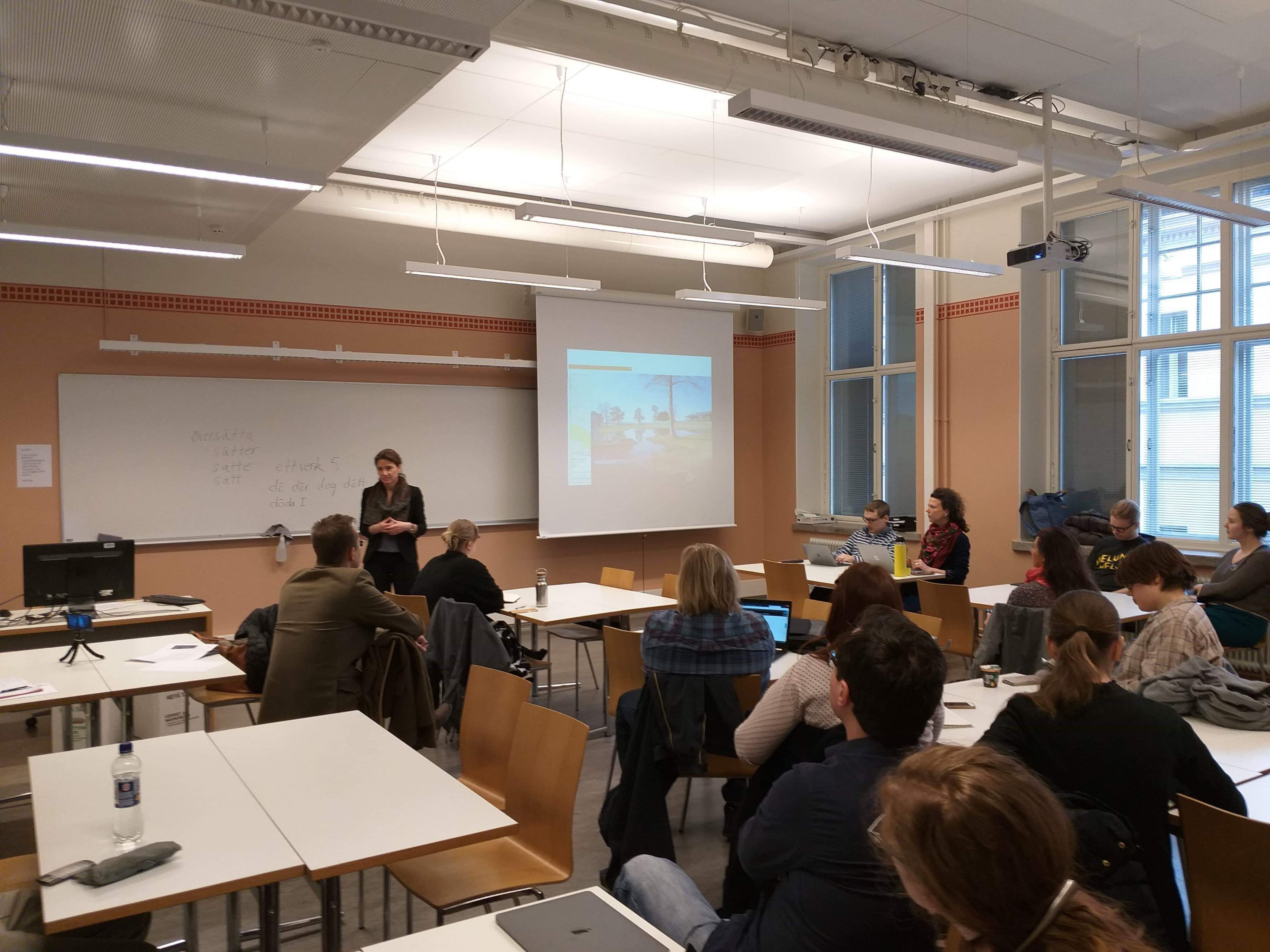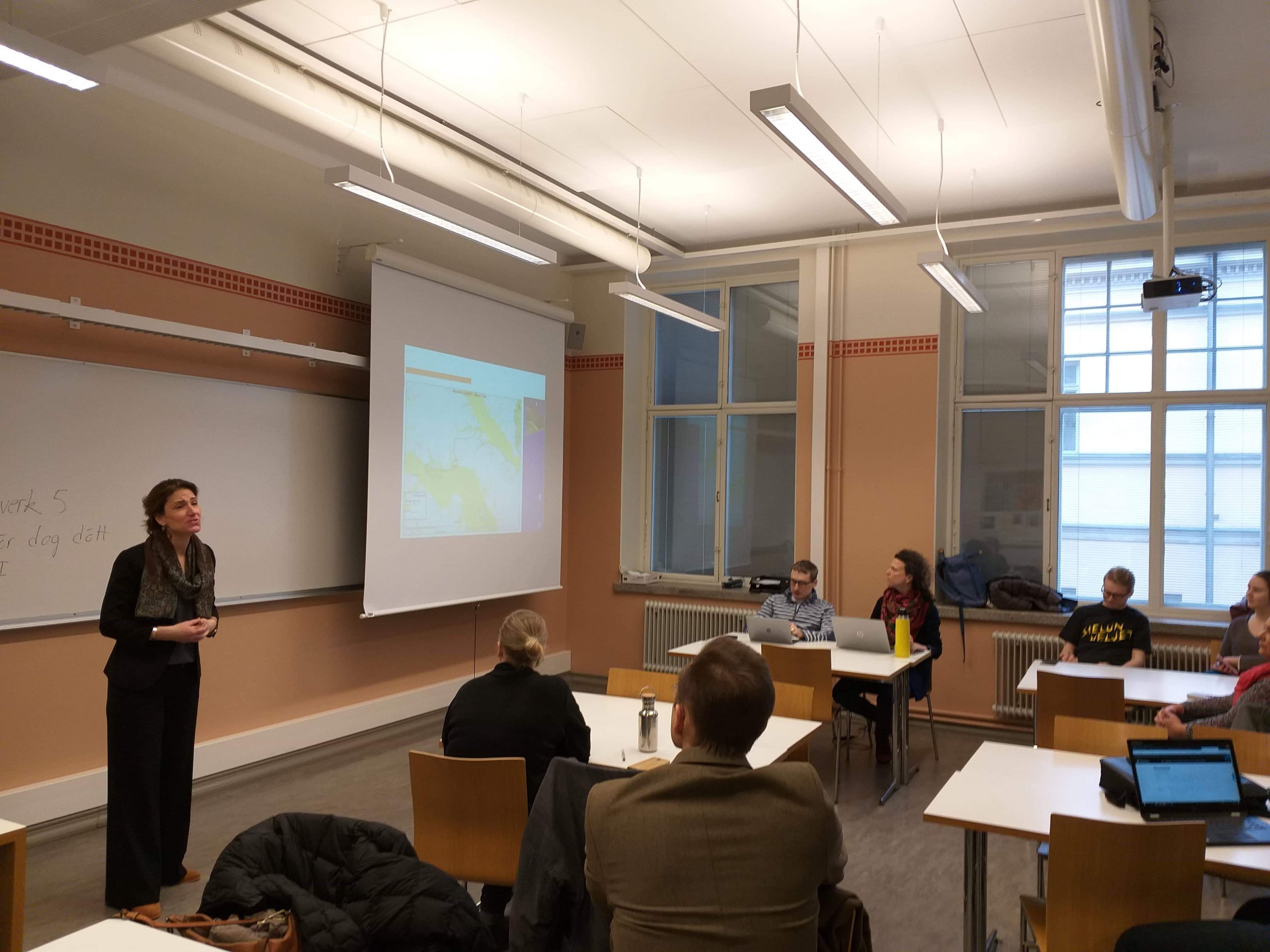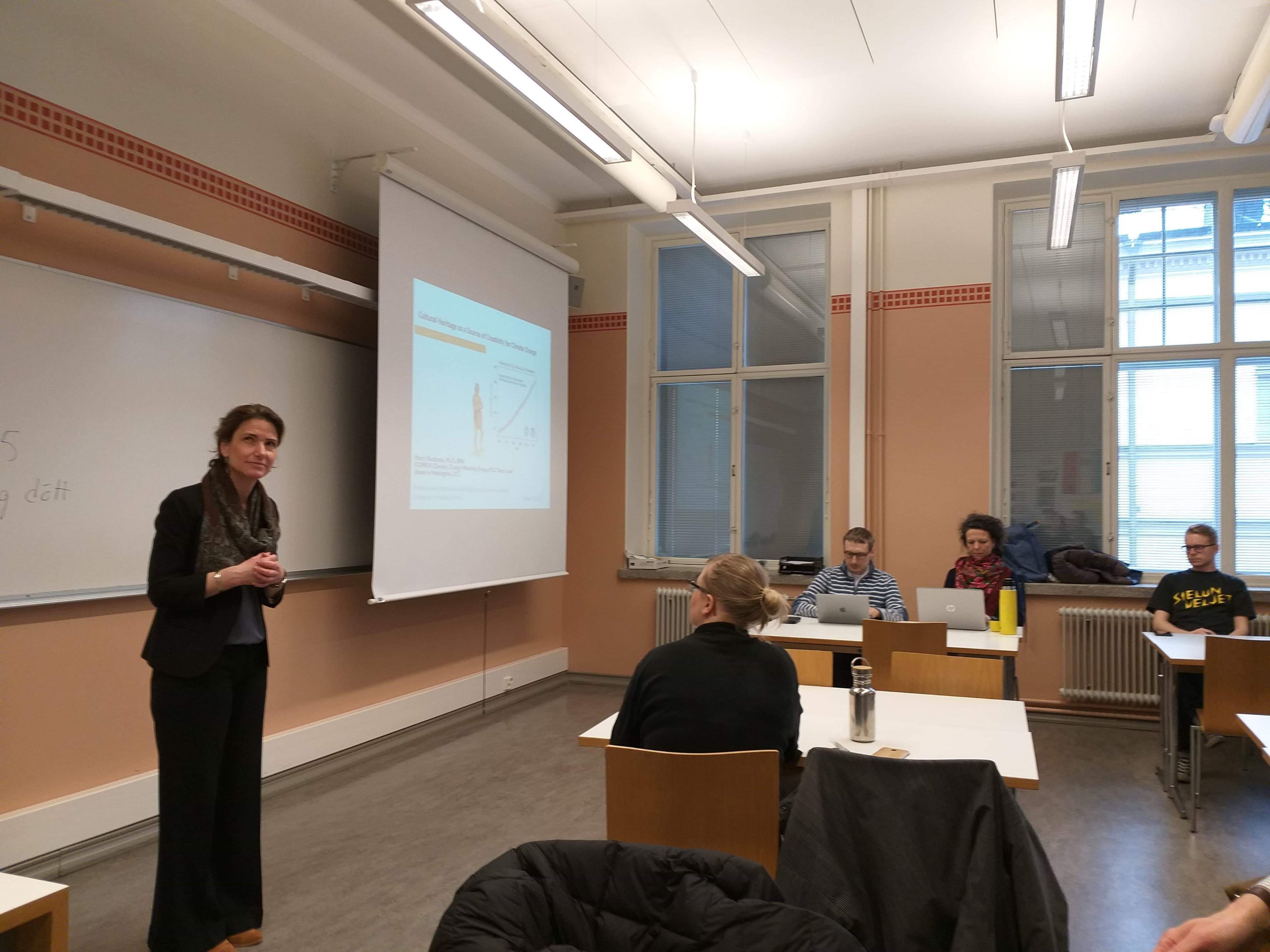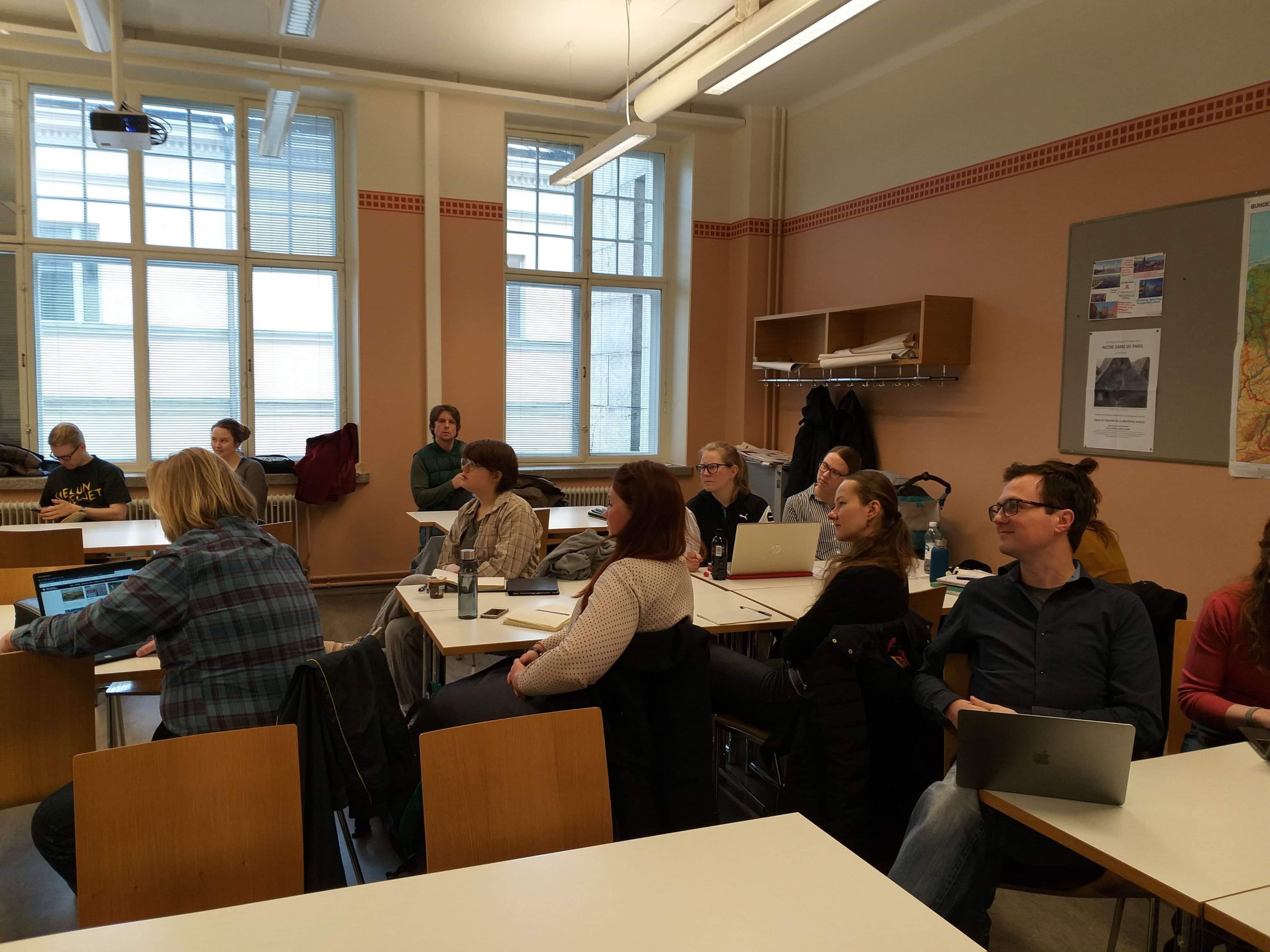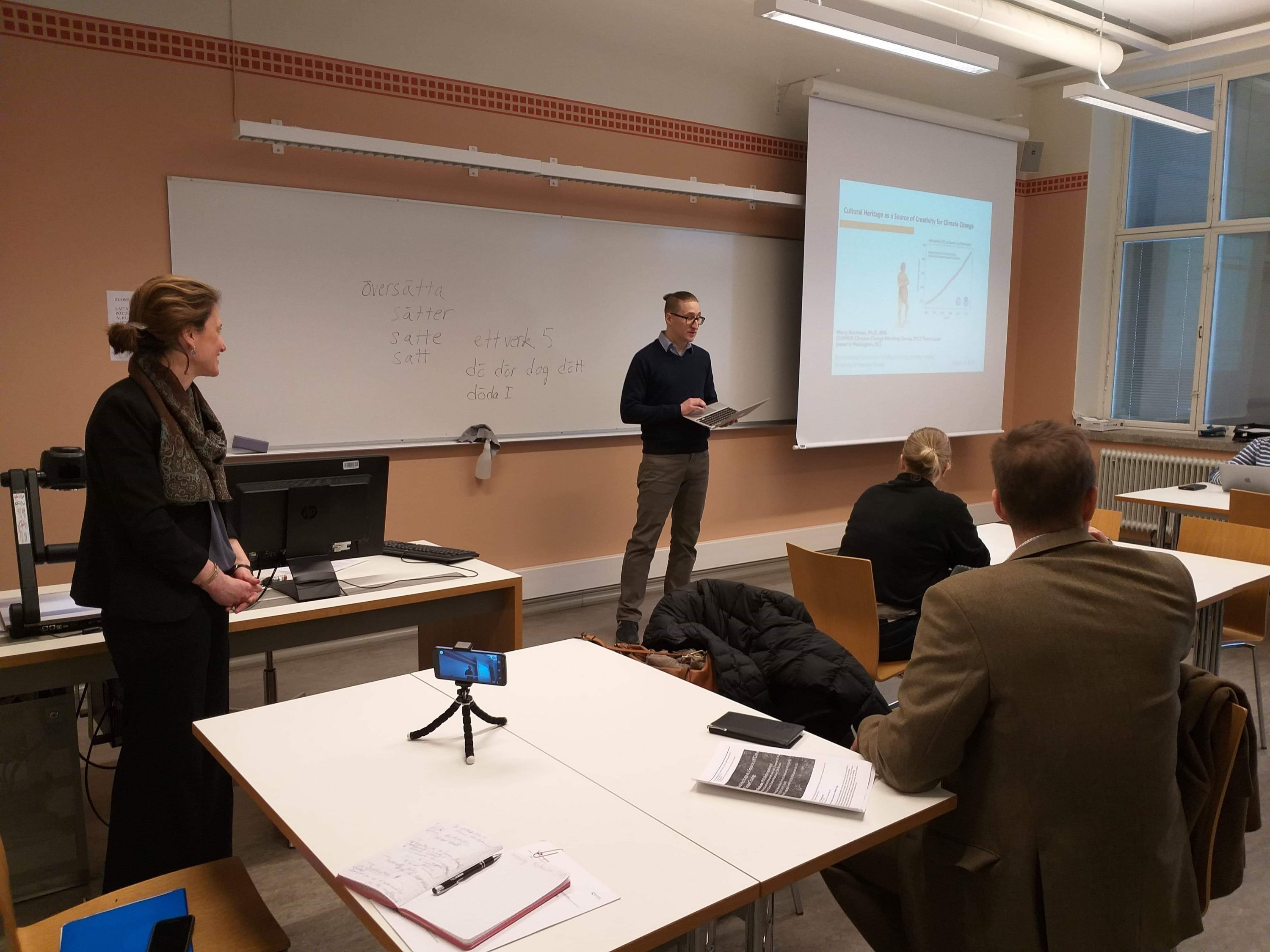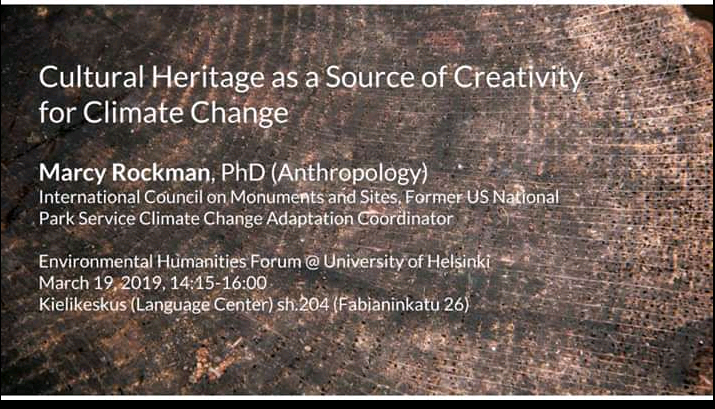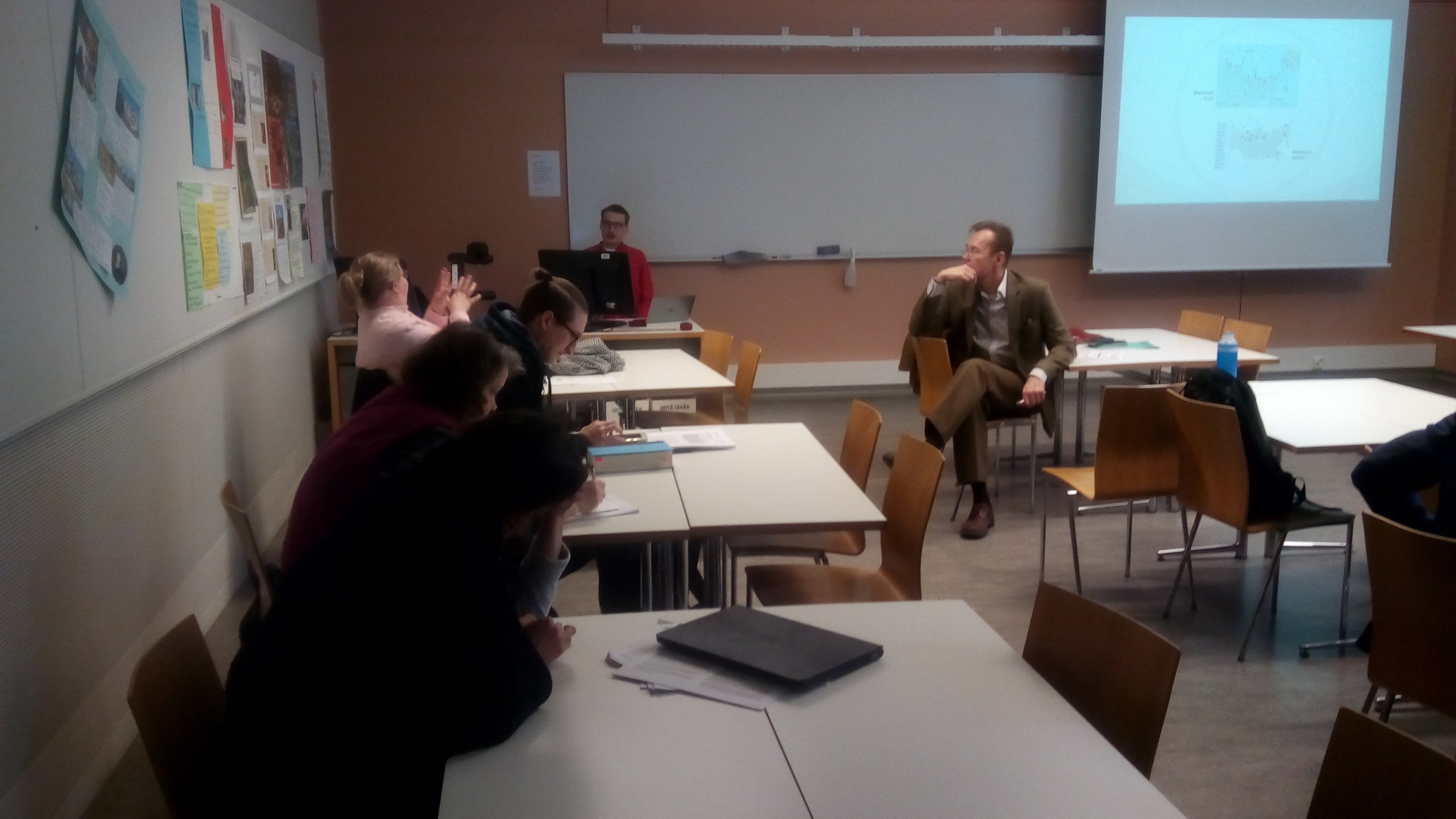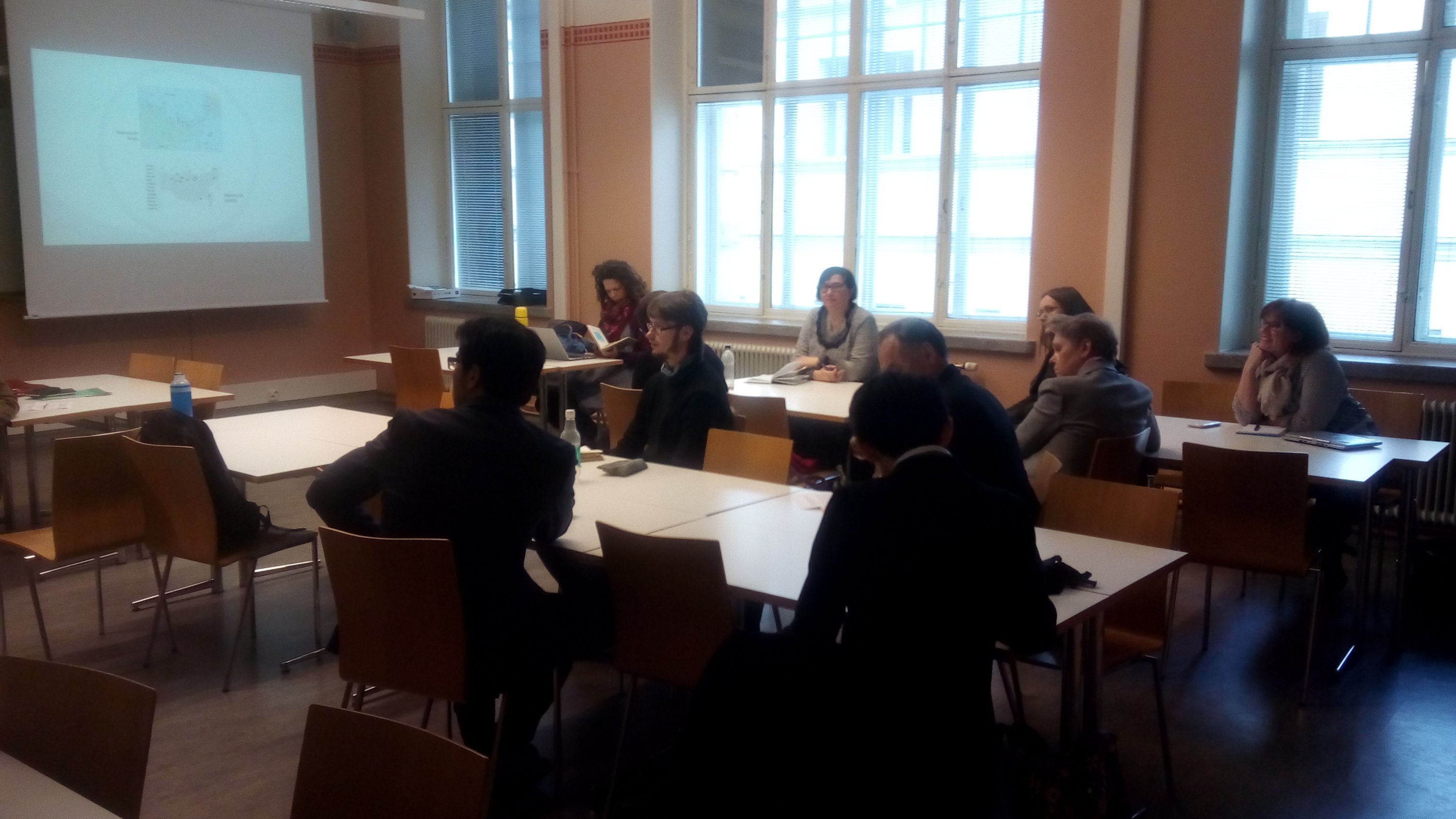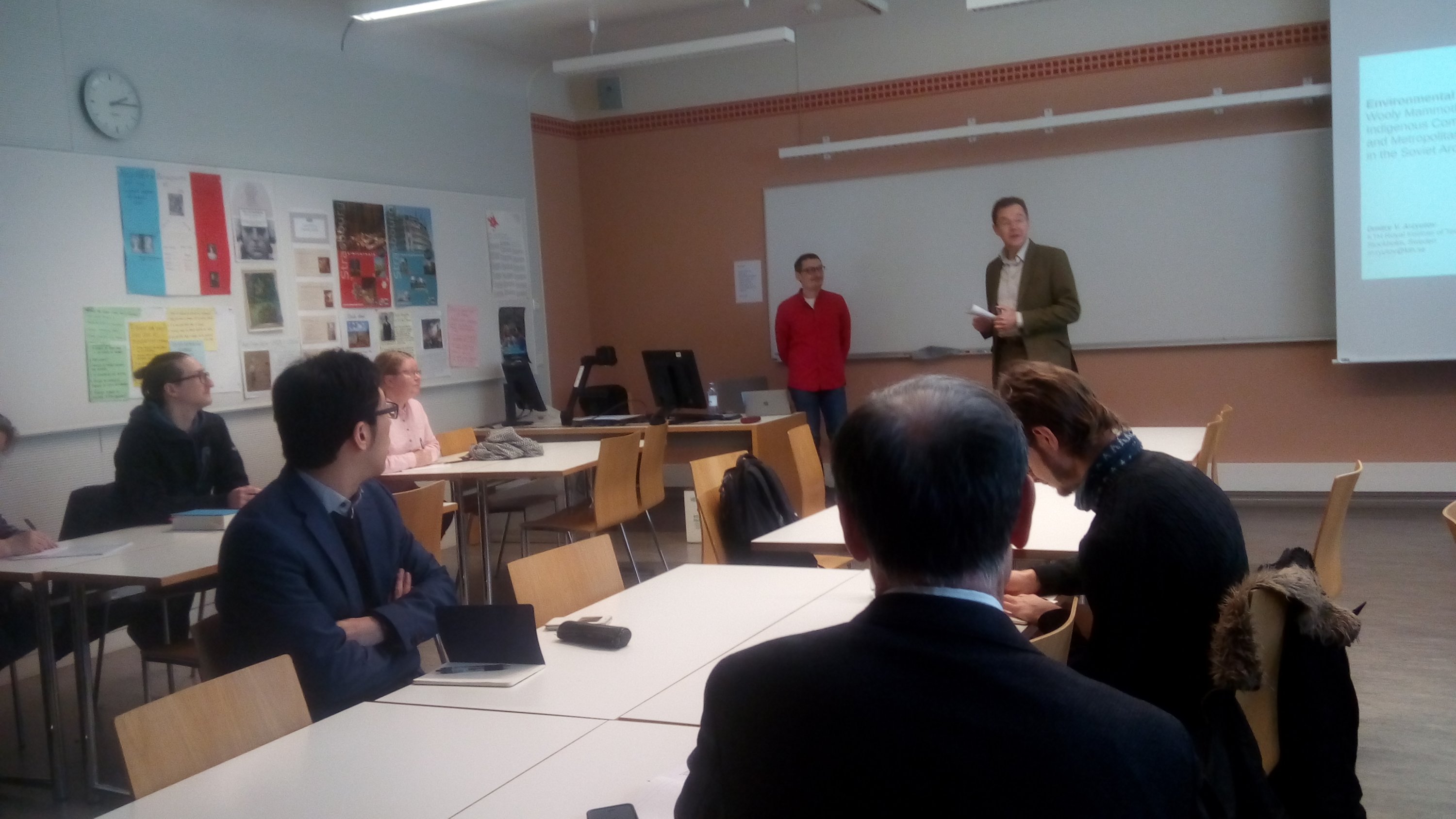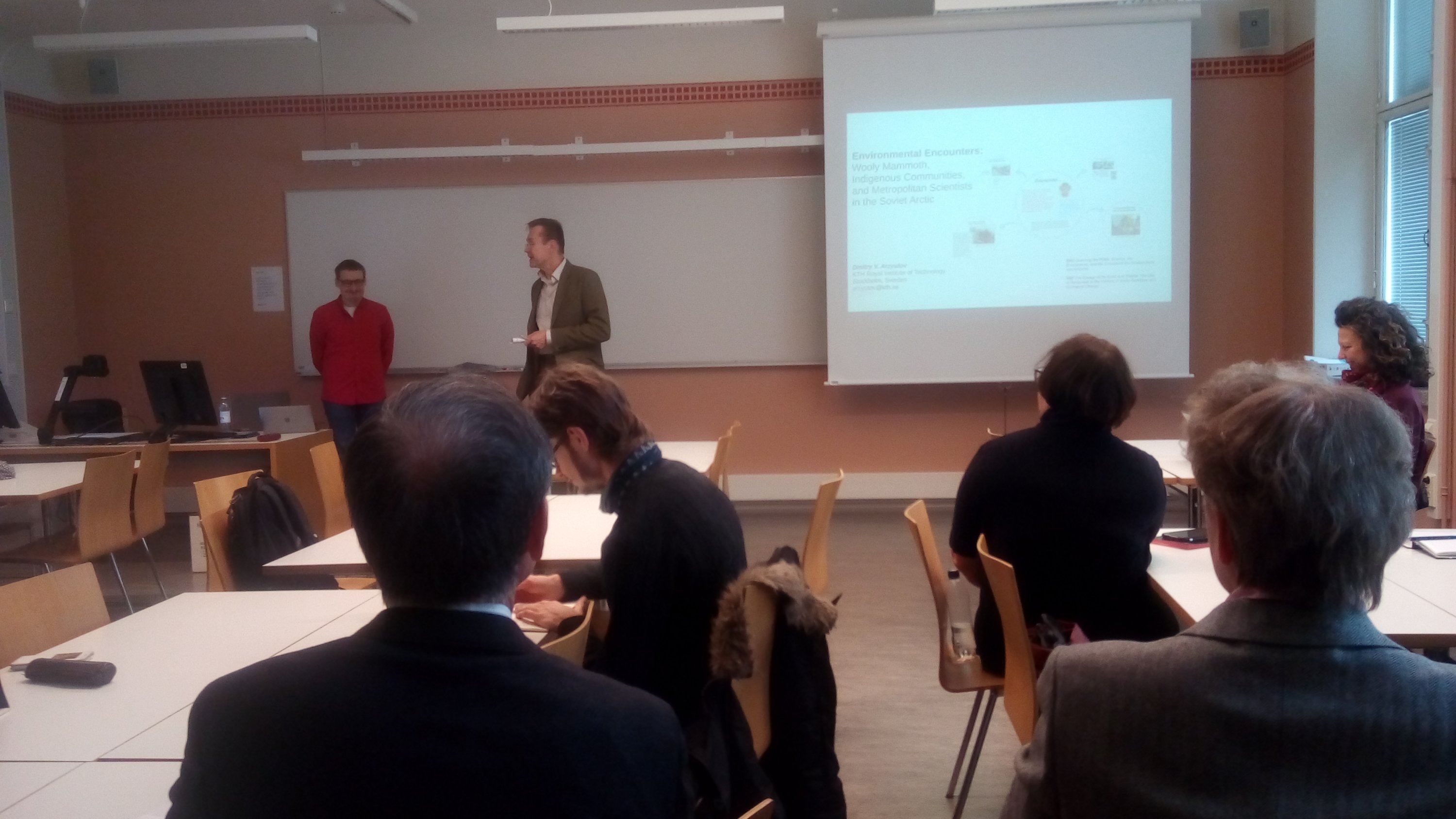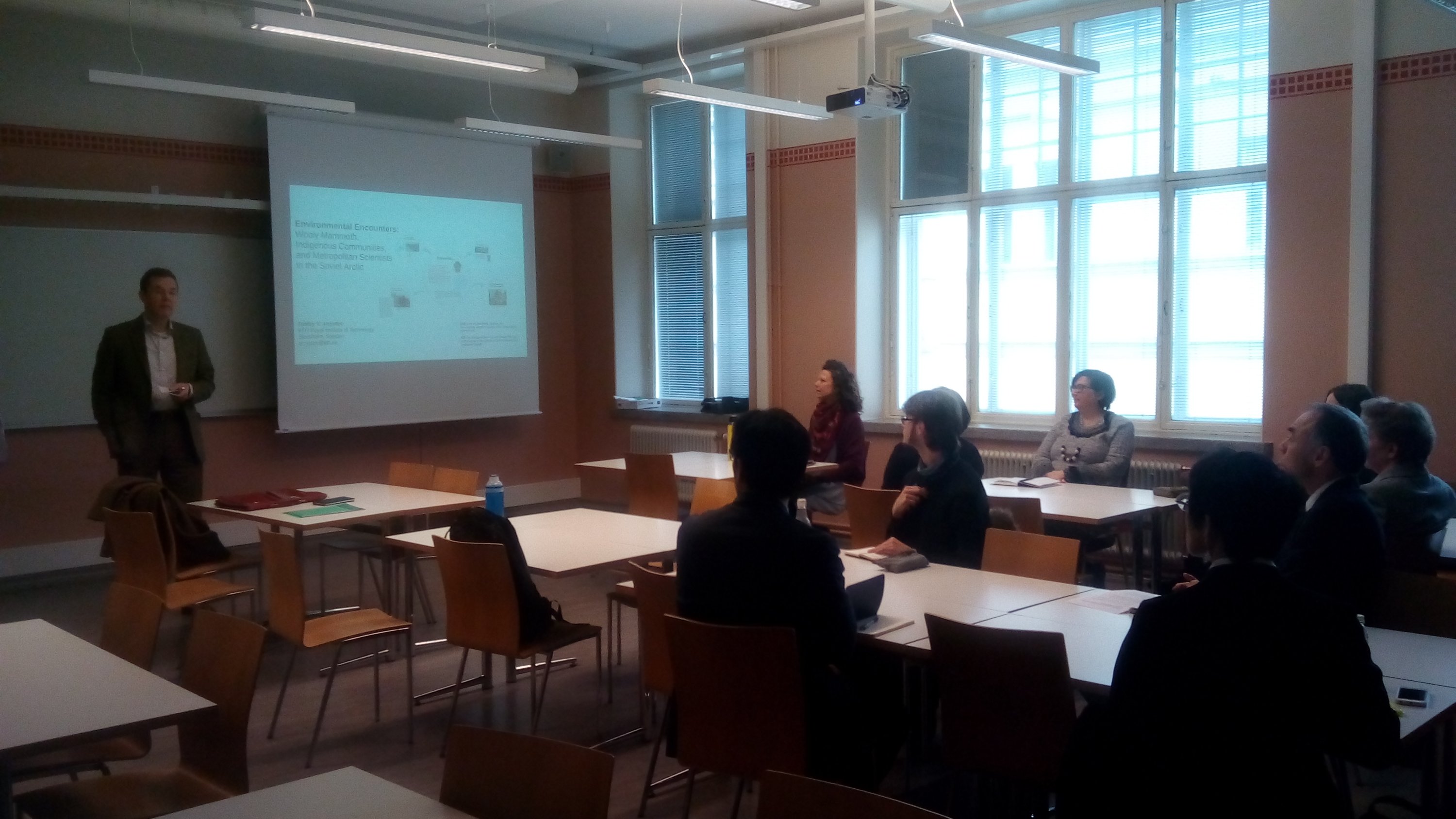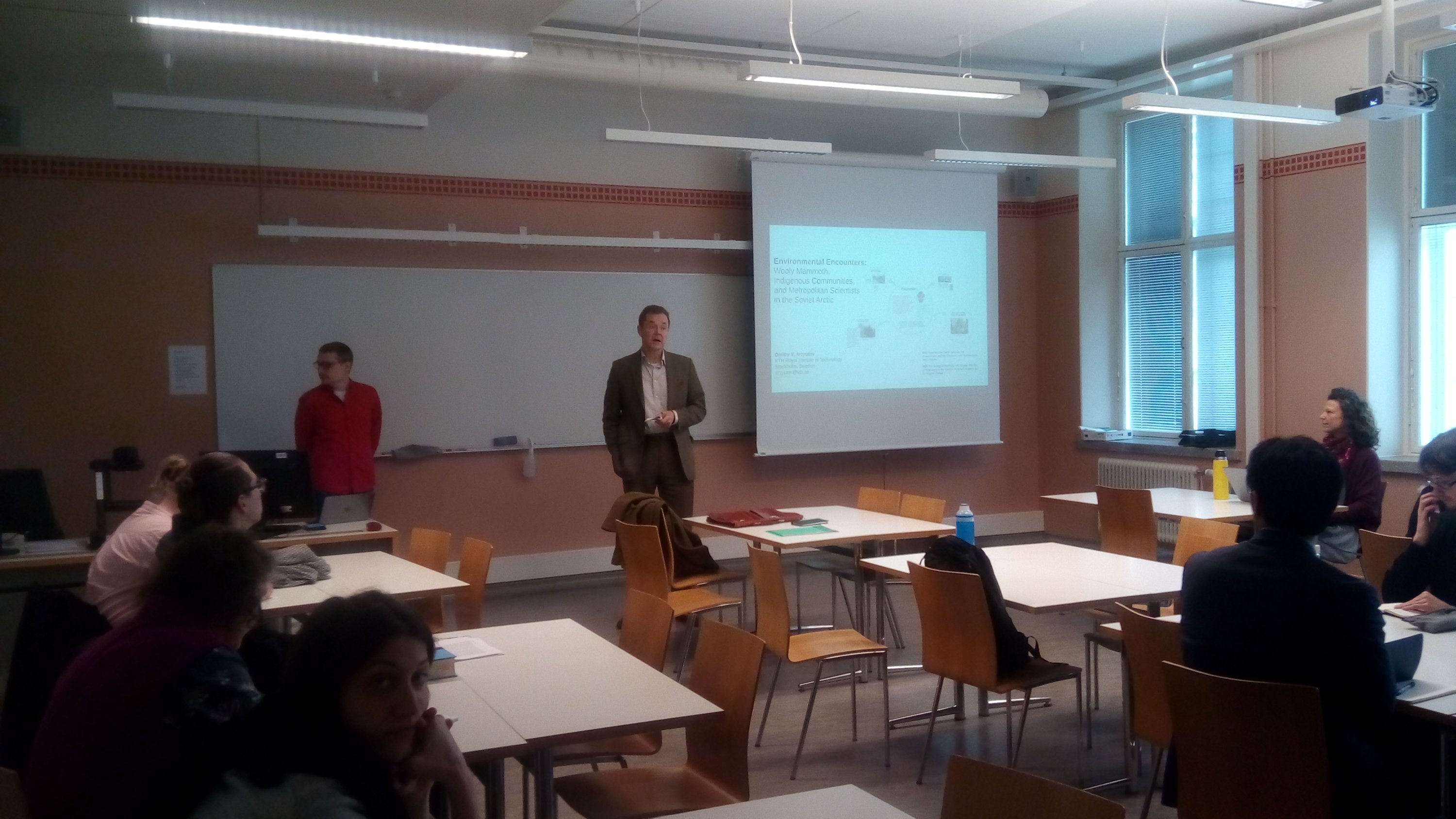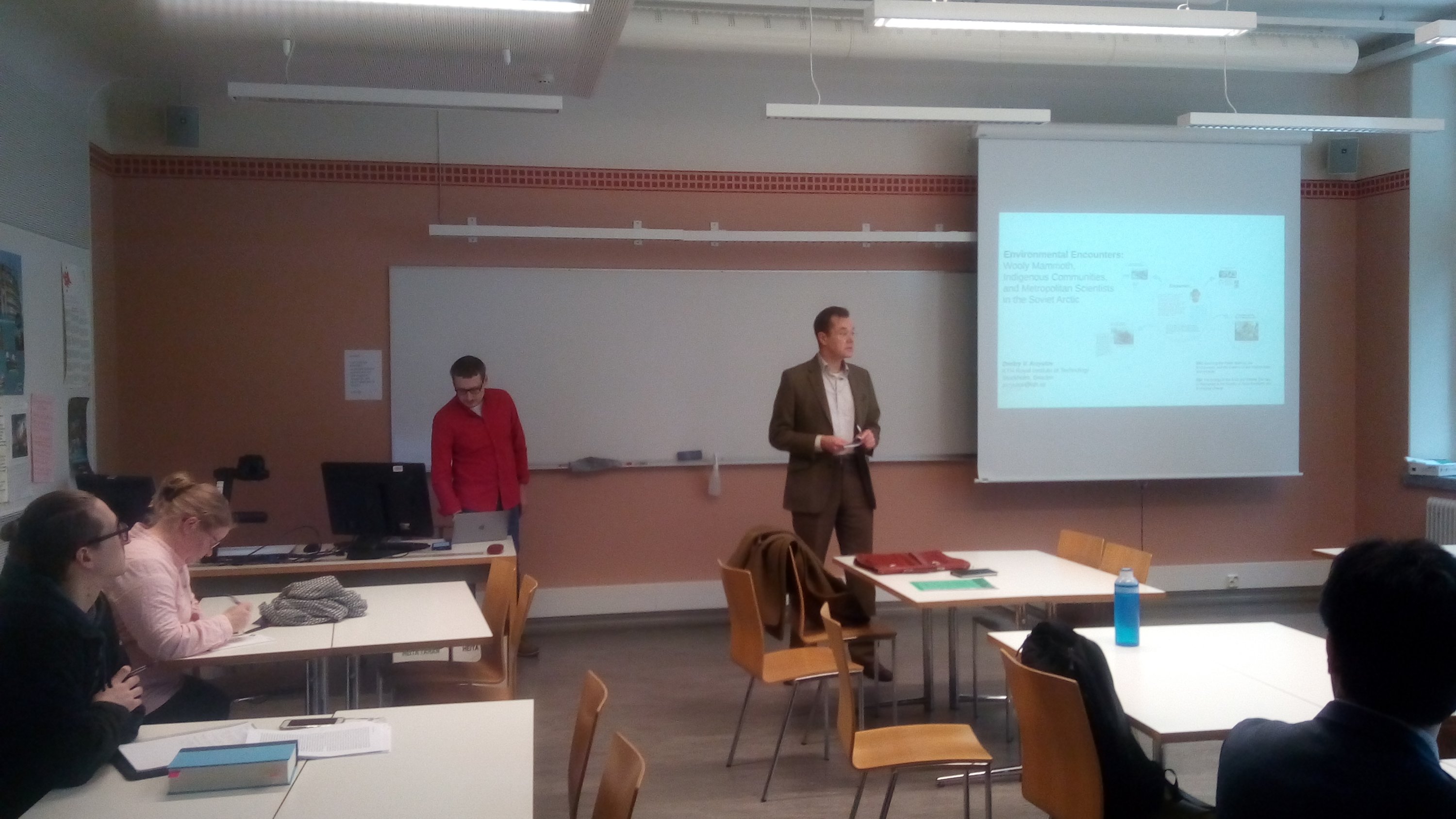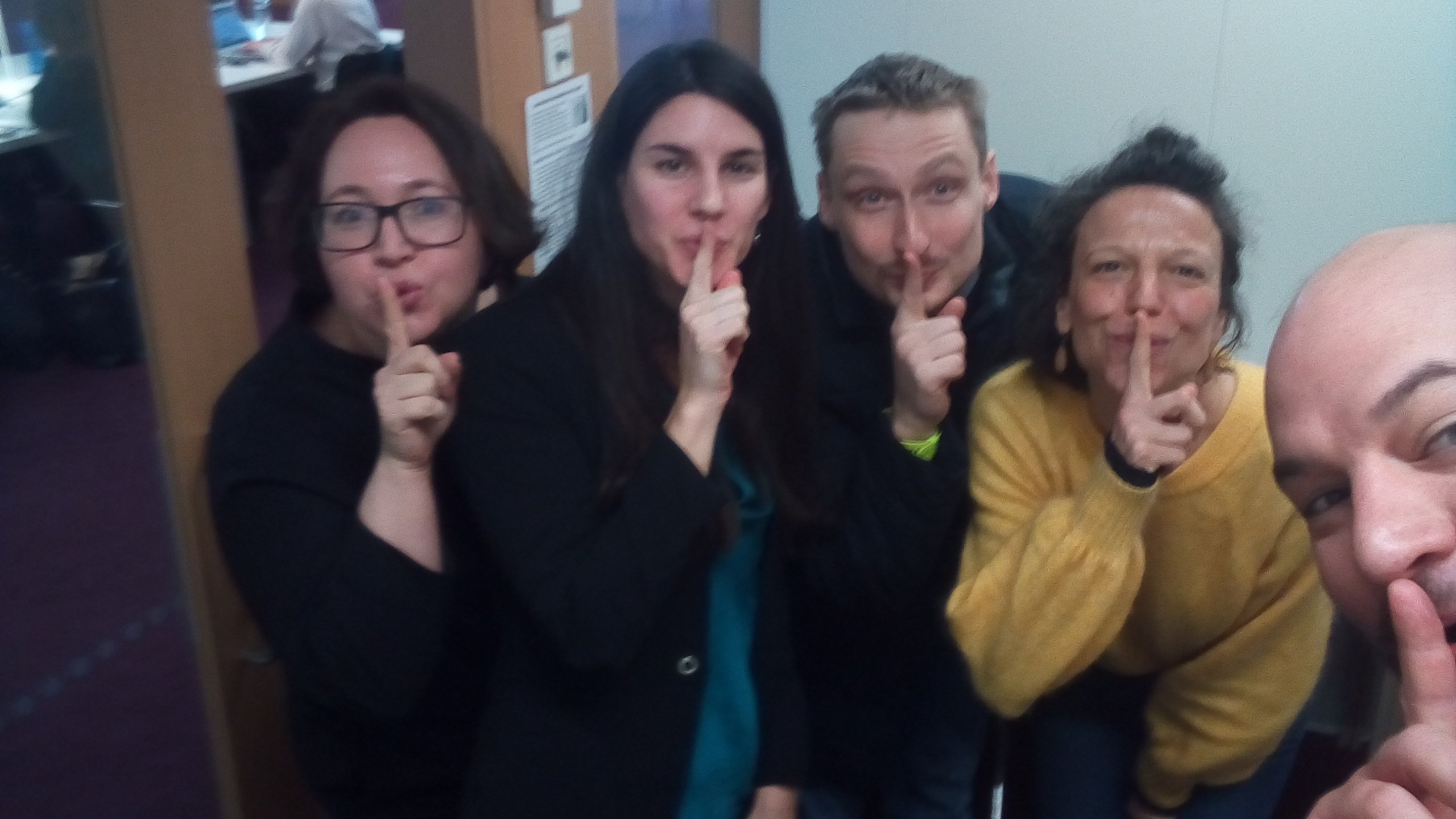The Arts for Justice,
Indigenous Coalition Building and Artistic Activism
April 15that 9:15–17:00
University of Helsinki, lecture room 5 (Fabianinkatu 33)
Seminar organized by Indigenous Studies and Environmental Humanities/ University of Helsinki and University of Arts Helsinki
This seminar discusses the contemporary engagements with artistic forms of evidencing, communicating, and resisting, such as visual arts, performance, theatre, writing, film, video, eco-media and social media that address environmental and social justice and Indigenous rights. How are various constituencies showcasing Indigenous ways of knowing and being, as well as calling for actions and approaches that challenge dominant practices, such as extractivism, pipelines, land grabbing, and other threats to Indigenous values and homelands? How might artistic activism contribute to building coalitions across nations and differences? What techniques are used to reach audiences and what possible changes can result? What can be evidenced by the arts? The participants are both artists and researchers, sharing their works and ideas, and then we encourage the participants to take part in the conversation in which we will learn from each other.
Preliminary schedule:
9:15 Opening words by the organisers
9:30–10:30 Keynote by Marja Helander (Sámi visual and video artist)
10:30–10:45 Coffee
10:45–12:15 Panel discussion 1:
Sasha Huber (artist and University of Arts Helsinki)
Eeva-Kristiina Harlin (University of Oulu)
Pirjo K. Virtanen (University of Helsinki)
Cheryl J. Fish (City University of New York)
(facilitator Lea Kantonen)
12:15–13:30 Lunch
13:30–14:15 Keynote by May-Brit Öhman (University of Uppsala):
14:15–14:30 Coffee
14:30–16:00 Panel discussion 2:
Stina Roos (Sámi artist)
Klisala Harrison (University of Helsinki)
Lea Kantonen (University of Arts Helsinki)
Hanna Guttorm (University of Helsinki)
(facilitator Cheryl J. Fish)
16:00–16:45 Student works’ presentation
16:45–17:00 End circle
17:00 Wine reception & Poster Exhibition by the students in the course Biocultural approaches to the environment and conservation (IND-512)
Registration by April 5 : https://elomake.helsinki.

